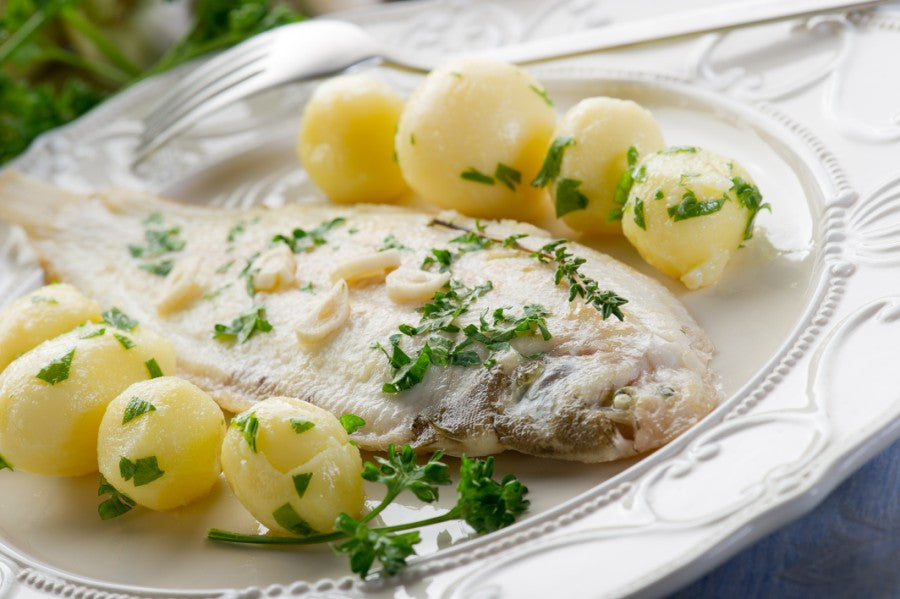
Apart From Being Seriously Tasty - What Else Do You Get From Dover Sole?
Share
A species of flatfish in the Soleidae family, Dover sole can be found on the sandy or muddy seabed of the northern Atlantic and the Mediterranean Sea. Because they excrete mucous that make them hard to hold, the Dover sole are also known as “slimy” or “slippery” sole.
The upper side of their body is greyish-brown, while the underside is white. Their small eyes are close to each other on the right side of the body, allowing them to lurk half-buried in the sand for passing prey. They grow up to 70 cm long. The female Dover sole can live up to 53 years, while the male can live up to 58 years.
Dover Sole As Food
You can buy Dover sole fresh, frozen whole or skinned and filleted. It is often sold skinned and trimmed ready to be cooked. It is versatile and has a mild, buttery, sweet flavour. For best results is should be cooked as simply as possible, either grilled, pan-fried, or roasted.
Besides being delicious, it is also healthy. For instance, it is a rich source of omega-3 fatty acids. These fatty acids are essential for the brain to function properly and help lower inflammation and risk of heart disease. The body is not able to produce them, so you need to get a good helping from your diet. And, eating Dover sole can help you with that.
Dover sole is also rich in vitamins and minerals, which work together to keep you healthy. More specifically, it is a good source of:
Selenium: This mineral has antioxidant properties, so it helps protect cells from damage. Examples of diseases related to selenium deficiency are: 1.) Kashin-Beck disease, which leads to joint and bone disease, and 2.) Myxedematous endemic cretinism, which causes intellectual disability.
Phosphorous: Its functions include building strong bones and teeth, filtering out waste in the kidneys, growing, maintaining, and repairing tissues and cells, and reducing muscle pain after exercise.
Magnesium: One of the seven essential macrominerals or minerals that need to be consumed in relatively large amounts, magnesium helps keep your bones strong, your blood pressure normal, and your heart rhythm steady. It also plays an important role in food metabolism and synthesis of fatty acids and proteins.
Niacin: Also known as vitamin B3, niacin can improve cholesterol levels and reduce cardiovascular risk. It also contributes to brain function, healthy skin formation, and prevention or treatment of diabetes.
Choline: This vitamin has similar properties with the B vitamin complex. While it is produced in the liver, you mainly get it from you diet. Its main functions include fat transport and metabolism, DNA synthesis, and maintenance of the nervous system. It can also prevent cancer, reduce cholesterol levels, and control asthma.
Overall, eating Dover sole is great not only for your taste buds but also for your health. It has a mild, sweet, buttery flavour and contains vitamins and minerals essential for maintaining your overall health.>/p>
